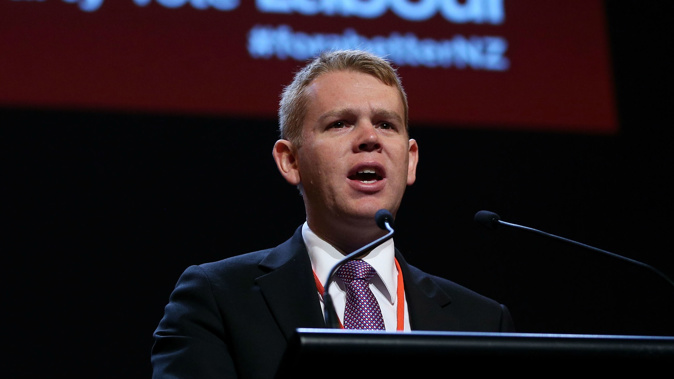
The Greens and some Labour MPs are calling for a national goal of making Māori language compulsory for all children in state schools.
The Greens have unveiled a new policy this morning to make te reo Māori a "universal core subject alongside English and maths" in all state schools from years 1 to 10.
Labour, which is in an alliance with the Greens for this year's election, says it is also "open to the idea", although its formal policy will be only to strengthen training in te reo for all primary school teachers.
"Many of us in the Labour Party certainly supported that proposition in the past that we would like to see all Kiwi kids learning te reo Māori," said Labour's shadow education minister Chris Hipkins.
"That is certainly something that I personally believe in."
The timing of the Greens' announcement, coming on the day when Prime Minister Bill English is expected to announce the election date, makes the policy an early election issue.
Only the detail of making te reo a core subject in years 1 to 10 is actually new. The Greens' policy at the last election already advocated "universal teaching of te reo Māori in all public schools".
Labour promised only to "work with communities and educators to expand the range and availability of options at all levels for Māori and Pacific language education".
Greens Māori development spokeswoman Marama Davidson conceded that it would take years to phase in compulsory Māori language education because of a national shortage of teachers who speak the language well enough to teach it.
"This is part of our working with the sector to determine what professional development is needed, what support for people going into te reo teaching is needed, what are the resources that we are short on," she said.
"Today we are announcing that we support universal te reo Māori for all public schools to year 10. The plan is over the next year to create a comprehensive plan to make sure we can actually achieve te reo Māori in all public schools."
Some Māori language is already common in most schools. Last year 2.4 per cent of all domestic school students were in schools teaching more than half the time in te reo Māori, 21 per cent were in schools teaching Māori for up to half the time, and 44.6 per cent were learning "Taha Māori", described as "simple words, greetings and songs in Māori".
But the remaining 32 per cent of students, including most higher-level high school students, were not exposed to any Māori language.
Census counts show that Māori people who can hold a conversation about everyday things in te reo shrank from 25.2 per cent of all Māori in 2001 to 21.3 per cent in 2013.
Davidson said New Zealand had a responsibility to preserve and sustain a language that was not spoken anywhere else in the world.
"One of the effective ways to ensure our language survives is to introduce all children to it in schools," she said.
"Many non-Māori children are coming home excited, falling in love with a beautiful language, and passing the little bits they learn on to their parents because they know it's ours. It belongs to everybody in this country."
She said te reo was a point of difference for the growing Māori economy in world trade.
"In the tourism economy, which is important for New Zealand, again a point of difference is having te reo Māori. That is one of our tourist exports."
Davidson said the Greens and NZ First tried to get a parliamentary select committee inquiry in 2015 into schools capacity to deliver to reo Māori, but the initiative was blocked by the National Party.
NZ First education spokeswoman Tracey Martin said her party did not support making the language compulsory, but did want to see more training and resources to help teachers teach it.
"You could make a decree on that, but who is going to deliver it?" she asked.
"Our idea is that we would increase the number of te reo Māori teachers, which is different from who can speak te reo Māori, and use them to support the teaching staff in the classrooms."
Take your Radio, Podcasts and Music with you








